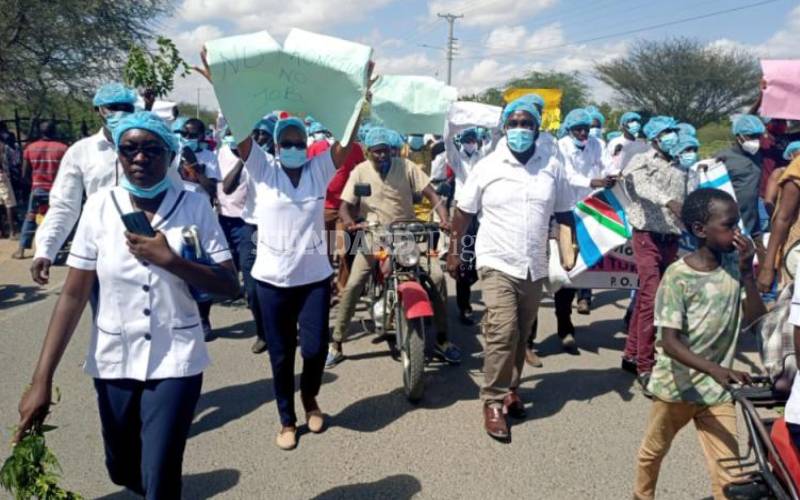×
The Standard e-Paper
Stay Informed, Even Offline

Nurses and clinical officers have been on strike since December last year following the government’s failure to address their safety concerns at work.
The health sector has experienced a lot of turbulence since it was partially devolved in 2014.